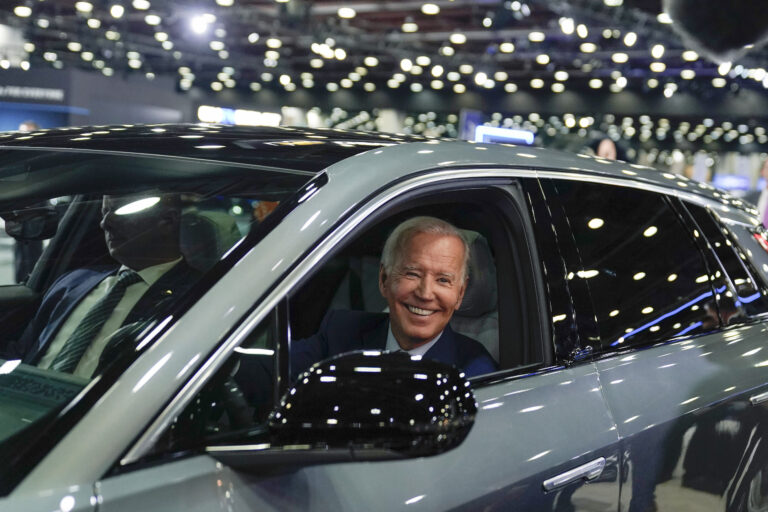President Joe Biden has unveiled the most stringent regulations on vehicle exhaust emissions ever implemented in the United States, aiming to expedite the transition of the auto industry towards electric cars.
Among the measures is a target for 56% of all new vehicles sold in the US to be electric by 2032, representing a substantial increase from current levels. Notably, this goal was slightly tempered from last year’s initial proposal, as a concession to car manufacturers. However, the Biden administration asserts that it will still significantly curb the emission of planet-warming gases.
According to the Environmental Protection Agency, Wednesday’s regulations are projected to avert 7 billion tonnes of carbon dioxide emissions over the next three decades.
The newly introduced measure imposes increasingly stringent limits on the amount of pollution allowed from vehicle exhausts, with car manufacturers facing substantial fines if they fail to meet the new standards. However, companies will still retain the ability to produce petrol-powered vehicles, albeit as a diminishing proportion of their overall product line.
In comparison to the European Union and the UK, the United States is adopting a more moderate approach. While the EU and UK have announced plans to prohibit the sale of petrol-powered cars by 2035, the US regulations do not go as far. Last year, UK Prime Minister Rishi Sunak opted to delay the British ban by five years from its original target of 2030.
The American automotive industry raised objections to an earlier draft of the rules, citing slower growth in electric vehicle (EV) sales. The initial proposal aimed for EVs to comprise 67% of all new cars sold by 2032.
Last year, electric vehicles (EVs) accounted for less than 8% of all new car sales, indicating a relatively low adoption rate. The Alliance for Automotive Innovation, a trade organization representing the automotive industry, expressed approval for the more gradual implementation of the regulations but deemed the target of 56% electric vehicle sales by 2032 as “extraordinarily ambitious.”
While environmental groups largely embraced the new regulations, some activists voiced dissatisfaction with their perceived lack of strength. However, the rules are anticipated to encounter legal opposition from the oil industry and states governed by Republicans. Ultimately, the matter may be resolved through legal proceedings that could potentially reach the Supreme Court.



























